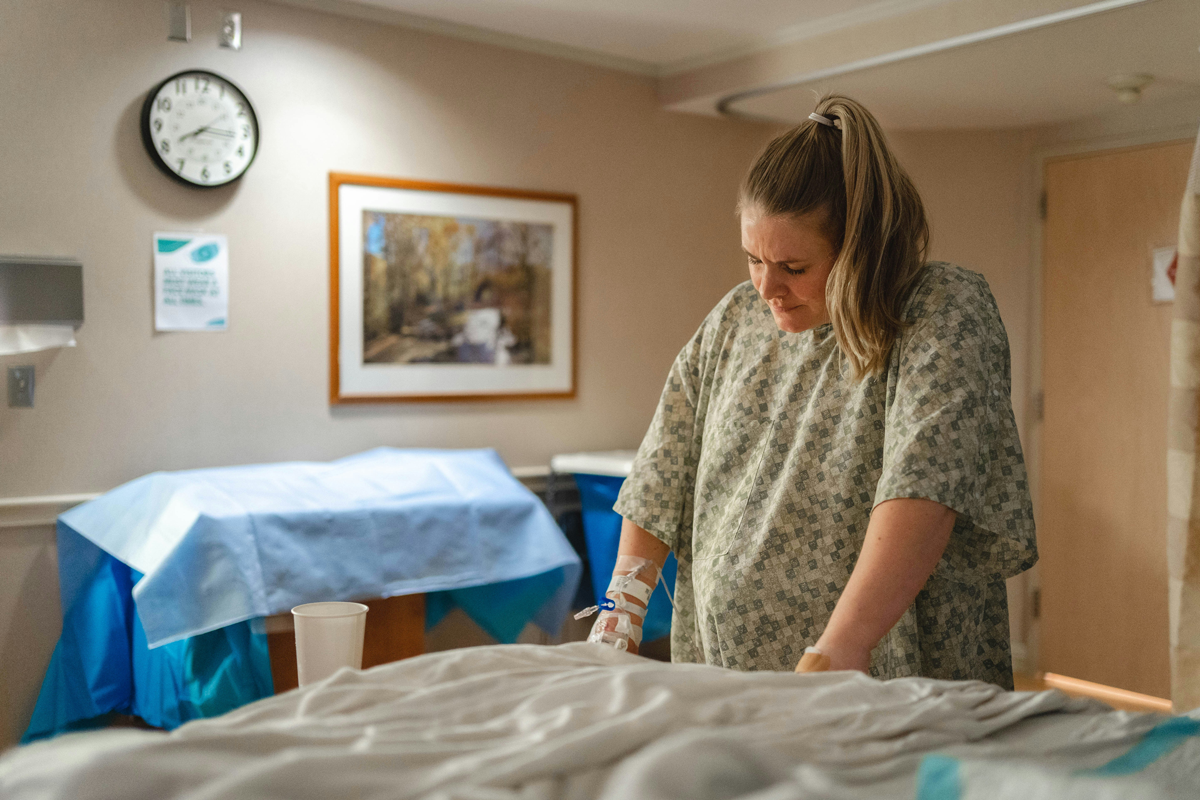UK Relocation Guide for Expats (2026): Visas, Housing, Cost of Living
A comprehensive, up-to-date relocation guide for expats planning a move to the UK in 2026, covering visas, housing strategy, cost of living, healthcare, education and life setup.
Updated 03/02/2026
Relocating to the United Kingdom is rarely an impulsive decision. For most expats, it is the result of months — sometimes years — of consideration, shaped by career progression, family priorities, education, or a desire for a different pace of life. The UK continues to attract people not because it promises ease, but because it offers structure: a place where systems are established, opportunities are dense, and long-term plans can take root.
In 2026, moving to the UK is neither simple nor opaque. The rules are clear, but they are exacting. Immigration routes are tightly defined, housing markets in popular areas are competitive, and much of daily life now depends on digital verification rather than physical paperwork. The experience of relocation is shaped less by surprise than by preparation.
What follows is a complete, practical guide to relocating to the UK as an expat in 2026. It covers immigration routes, housing strategy, cost of living, healthcare, education, administration and the realities of day-to-day life after arrival. Each section reflects how the process works in practice — not in theory — and is intended to support informed, confident decision-making at every stage.
- Why Expats Continue to Move to the UK
- Planning a UK Relocation: How Long It Really Takes
- Choosing Where to Live in the UK as an Expat
- Understanding UK Visas and Immigration in 2026
- ETA, eVisas and Digital Border Changes
- Documents You Should Prepare Before Moving
- Cost of Living in the UK: What Expats Should Budget For
- Housing and Renting in the UK
- Setting Up Life in the UK: Banking, Tax and Utilities
- Healthcare and the NHS for Expats
- Schools, Childcare and Family Life
- Shipping Belongings and Moving Logistics
- Transport, Driving and Daily Mobility
- Your First 90 Days in the UK
- Frequently Asked Questions
Why Expats Continue to Move to the UK
Despite global uncertainty and changing migration patterns, the UK remains one of the most sought-after relocation destinations in the world. Its appeal lies in concentration: professional opportunity, higher education, healthcare, culture and infrastructure exist within a relatively small and highly connected country.
For professionals, the UK job market continues to offer depth. London remains a global centre for finance, law, technology and creative industries, but it is no longer the only viable option. Regional cities such as Manchester, Leeds, Birmingham, Bristol, Edinburgh and Glasgow now support strong employment ecosystems of their own, often with a better balance between income and living costs.
Education is another powerful draw. British universities retain international prestige, but equally important is the wider academic environment — predictable academic calendars, regulated accommodation, and post-study routes that allow graduates to gain experience before deciding whether to remain long term.
For families, the attraction is often quieter. Access to public healthcare, structured schooling, and neighbourhood-based life creates a sense of stability once the initial transition is complete. Many expats find that while the first months require focus and organisation, daily life in the UK becomes easier rather than harder over time.
Planning a UK Relocation: How Long It Really Takes
One of the most common misconceptions about moving to the UK is speed. While some expats arrive with employment, accommodation and timelines already in place, most relocations unfold over several distinct phases.
From decision to stable settlement, a realistic timeframe for 2026 looks like this:
Several months to confirm the correct immigration route and gather documentation
Several weeks to several months for visa processing, depending on category
One to three months after arrival to secure long-term housing
Additional weeks to complete banking, healthcare registration and administrative setup
Difficulties typically arise when these phases overlap in the wrong order. Attempting to secure housing without being able to demonstrate immigration status or income, or starting work before administrative checks are complete, often results in delays or unnecessary costs.
Successful relocations tend to follow a simple principle: sequence matters. Each step becomes easier when the previous one is fully resolved.
Choosing Where to Live in the UK as an Expat
Choosing where to live is one of the most consequential decisions an expat will make. In the UK, location influences not only lifestyle, but also cost of living, commuting patterns, school access and long-term financial planning.
London continues to attract expats working in global industries, but housing costs mean that many choose outer boroughs or commuter towns rather than central neighbourhoods. Areas with strong rail links offer access to the capital without the pressure of inner-city rents.
Beyond London, the UK offers a wide range of viable alternatives. Cities such as Manchester, Leeds, Birmingham and Bristol provide strong employment markets and cultural life, often at significantly lower housing costs. In Scotland, Edinburgh and Glasgow attract both professionals and families, while Wales and Northern Ireland offer a slower pace and strong community identity.
For families, schooling often shapes location decisions more than any other factor. Catchment areas can determine access to state schools, and childcare availability varies significantly by region.
Many expats find it beneficial to begin in temporary accommodation, allowing time to experience neighbourhoods first-hand before committing to a long-term tenancy.
Understanding UK Visas and Immigration in 2026
Immigration status underpins every aspect of life in the UK. The route under which an expat enters the country determines not only the right to live and work, but also access to public services, the ability to bring dependants, and whether settlement is possible in the future.
In 2026, most expats relocate under one of several broad categories.
Work-based visas require sponsorship from an approved employer and must meet specific role and salary criteria. These routes are commonly used by professionals in healthcare, engineering, technology, education and specialist trades, and often provide a pathway to permanent settlement.
Health and care routes operate separately, reflecting workforce demand and public service priorities.
Student visas apply to those accepted by approved educational institutions and require evidence of funding and accommodation planning.
Family visas allow partners and children of British citizens or settled residents to join them in the UK, subject to relationship and financial requirements.
Specialist routes, such as global talent or innovation-based visas, apply to narrower profiles but can offer greater flexibility.
Choosing the correct route at the outset is critical. In many cases, switching later is either restricted or impossible from within the UK.
ETA, eVisas and Digital Border Changes
The UK’s border system is now largely digital. Many travellers require advance electronic authorisation before travel, and long-term residents increasingly rely on online status rather than physical documents.
For expats, this has practical implications. Immigration permission is accessed through an online account, and status is verified digitally by employers, landlords and service providers. Passport details must be kept up to date to avoid disruption when travelling.
Digital organisation has become an essential part of relocation planning. Secure access to immigration accounts and documentation is no longer optional.
Documents You Should Prepare Before Moving
Administrative preparation has a direct impact on how smoothly the first months unfold. The UK is a document-driven system, and expats should expect to provide proof repeatedly.
Most relocations require original or certified copies of:
Passport and immigration approval details
Birth certificates and, where relevant, marriage or partnership certificates
Academic qualifications and professional licences
Financial documentation demonstrating income or savings
Medical summaries for ongoing treatment
Documents not issued in English should be professionally translated in advance. Having both physical and digital copies readily available reduces delays and stress.
Cost of Living in the UK: What Expats Should Budget For
The cost of living in the UK varies widely by region, but housing is the single largest expense for most expat households. Transport, childcare and utilities follow closely behind.
Upfront costs are often underestimated. These may include rental deposits, advance rent, temporary accommodation, immigration-related fees and household setup expenses. Many expats find that the first three months are the most financially demanding.
Building a buffer that allows for a period without income, particularly when relocating without guaranteed employment, provides flexibility and reduces pressure during the transition.
Housing and Renting in the UK
The UK rental market can move quickly, particularly in cities. New listings are often let within days, and competition is strongest in areas with good transport links or schools.
New arrivals typically face additional scrutiny due to the absence of UK credit history. Landlords commonly request proof of income, immigration status and references. In some cases, they may ask for rent upfront or a UK-based guarantor.
A two-stage housing approach is common among expats: short-term accommodation on arrival, followed by a long-term tenancy once documentation and finances are fully in place.
Setting Up Life in the UK: Banking, Tax and Utilities
Daily life becomes significantly easier once banking and utilities are established. A UK mobile number is often required for verification processes, while a local bank account simplifies salary payments, rent and household bills.
Proof of address remains a key requirement, linking housing and banking decisions closely together. Many expats open an initial account soon after arrival and adjust later once settled.
Tax registration and payroll setup are typically handled through employers, but self-employed expats must take additional steps to register correctly.
Healthcare and the NHS for Expats
Access to healthcare depends on immigration status and any healthcare charges paid as part of the visa process. Registration with a local GP is required to access routine NHS services.
The NHS provides comprehensive emergency and primary care, but waiting times for non-urgent specialist treatment can be long. Some expats choose to supplement NHS access with private healthcare for specific needs.
Understanding how healthcare operates in practice helps set realistic expectations from the outset.
Schools, Childcare and Family Life in the UK
For families relocating to the UK, decisions around education and childcare often shape the entire move more than any other factor. Where you live, how you structure your working life, and even the timing of your relocation can all be influenced by the availability of school places and early years provision.
Education in the UK is devolved, meaning England, Scotland, Wales and Northern Ireland each operate their own systems. While broadly similar in structure, there are important differences in curriculum, assessment and terminology. In England and Wales, children follow the National Curriculum, progressing through primary and secondary education before sitting GCSEs and, for many, A-levels. Scotland operates the Curriculum for Excellence, with different qualifications and a distinct educational philosophy. Northern Ireland broadly mirrors the English system but with local administrative differences.
Settling In and Looking Ahead
By the time the first three months have passed, most expats find that the most demanding part of the move is behind them. The urgency of forms, registrations and temporary arrangements gives way to something quieter and more durable: routine. You know where to buy groceries, how long your commute actually takes, which GP surgery serves your address, and which local café feels familiar enough to linger in. These are small markers, but together they signal a shift from relocation to residence.
Life in the UK tends to reward patience. Systems can feel rigid at first, particularly to those used to more informal arrangements elsewhere, but once understood, they offer predictability. Healthcare, schooling, transport and local services operate within clear frameworks. Over time, this structure becomes an asset rather than a constraint, allowing long-term planning to replace short-term problem-solving.
For many expats, the next phase involves reassessment. Temporary housing may give way to a more permanent home. Short-term work plans evolve into longer commitments. Families begin to think beyond the school place they secured for this year and towards continuity. Some start exploring settlement options, while others simply settle into the rhythm of everyday life without feeling the need to define it too tightly.
What matters most is that the UK rarely demands reinvention. It allows people to arrive as they are and build gradually. Whether your move is intended to last a few years or become something permanent, the foundations you establish early — understanding how systems work, choosing where to live carefully, and approaching the process with realism — shape everything that follows.
Relocation, in the end, is not about mastering every detail before you arrive. It is about knowing enough to make informed decisions, leaving room for adjustment, and allowing a place to reveal itself over time. With preparation and perspective, moving to the UK in 2026 can be less about disruption and more about continuity — a new setting for a life already in motion.
UK Boarding Schools
From academic excellence and international programmes to a supportive home-away-from-home environment, these schools cater to every family’s needs.
Most expat families enrol their children in state schools, which are free at the point of use but usually allocated based on catchment areas. This means that your address can directly affect which schools you can apply to, making housing and education decisions closely linked. Popular schools in high-performing areas can be oversubscribed, and availability may be limited, particularly for mid-year moves.
Independent (private) schools offer an alternative, with smaller class sizes and broader extracurricular programmes, but fees can be substantial. International schools, concentrated mainly in London and larger cities, appeal to families who expect to relocate again in future and prefer continuity through curricula such as the International Baccalaureate or American systems.
Childcare for younger children is a major practical and financial consideration. Nurseries, childminders and nannies are all common options, but demand often exceeds supply, particularly in urban areas. Costs vary widely by region and provider, and waiting lists are common. While government-funded childcare hours exist, eligibility depends on factors such as residency status, employment and age of the child.
Families often find that once schooling or childcare arrangements are settled, integration accelerates. School communities, parent networks and local activities provide natural entry points into social life, helping both children and adults feel established more quickly.
Shipping Belongings and Moving Logistics
Deciding what to bring to the UK is as much about lifestyle as logistics. Many expats arrive with expectations shaped by housing norms in their home country, only to discover that space, storage and layout differ significantly in the UK, particularly in cities.
UK homes are often more compact, with narrower staircases, smaller rooms and limited built-in storage. Furnished rentals are common, especially in urban areas, which can reduce the need to ship large items. As a result, many expats choose to bring fewer belongings than initially planned, prioritising personal items, clothing and essentials over furniture and household goods.
Shipping options vary depending on volume, budget and timeline. Sea freight is typically the most economical for large shipments but can take several weeks or months. Air freight is faster but considerably more expensive, and is often used only for essential items. Some expats opt for excess baggage services for a small number of additional suitcases rather than full household shipping.
Customs rules allow personal belongings to be imported without duty in many cases, provided conditions are met, but documentation and inventories are still required. Delays can occur, so it is wise to plan for a period of living without shipped items. Essentials such as important documents, medications, work equipment and seasonally appropriate clothing should always be carried personally.
Approaching shipping decisions conservatively often proves beneficial. Once settled, many expats find that replacing items locally is easier and more cost-effective than anticipated.
Transport, Driving and Daily Mobility
How you move around the UK will depend heavily on where you live. In major cities, public transport forms the backbone of daily mobility. London’s Underground, buses and regional rail network allow many households to live comfortably without a car. Other cities offer tram, metro or bus systems, though coverage and frequency vary.
Outside urban centres, public transport becomes less comprehensive, and car ownership is often more practical. Rural areas, smaller towns and suburban locations may have limited bus services and infrequent trains, making driving an important part of daily life.
Driving in the UK involves both legal and practical adjustments. The UK drives on the left, roads can be narrow, and manual transmission vehicles are common. Driving licence rules depend on nationality: some expats can exchange their existing licence for a UK licence without testing, while others may drive for a limited period before needing to pass UK theory and practical tests.
Fuel prices, insurance costs and parking availability should all be factored into transport planning. In cities, congestion charges and restricted parking can make car ownership costly, while in rural areas the opposite may be true.
Understanding how transport fits into your chosen location helps avoid friction later, particularly when balancing commuting, school runs and family logistics.
Your First 90 Days in the UK
The first three months in the UK are less about exploration and more about consolidation. This is the period in which temporary arrangements are replaced with permanent ones and daily life begins to take shape.
The initial weeks are typically focused on practical priorities: securing long-term housing, completing right-to-work or right-to-rent checks, registering with healthcare services, setting up utilities and finalising banking arrangements. These tasks can feel administrative, but they form the infrastructure that allows everything else to function smoothly.
As routines begin to settle, attention often shifts to work, education and community life. Commutes become familiar, children adjust to school or childcare, and local services start to feel navigable rather than opaque. This is also when many expats begin to build social connections, whether through work, schools, neighbourhood activities or shared interests.
By the end of the first 90 days, most expats find that the intensity of the relocation process has eased. The UK stops feeling like a sequence of tasks to complete and starts to feel like a place to live. While adjustment continues well beyond this point, the foundations are usually in place, allowing daily life to move forward with confidence and continuity.




